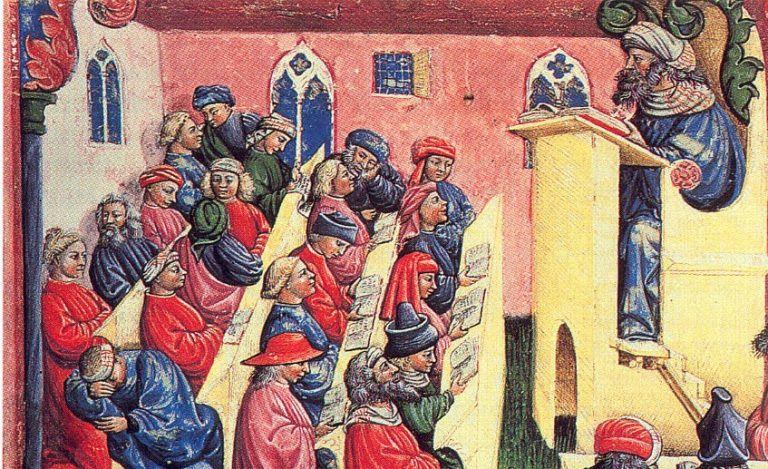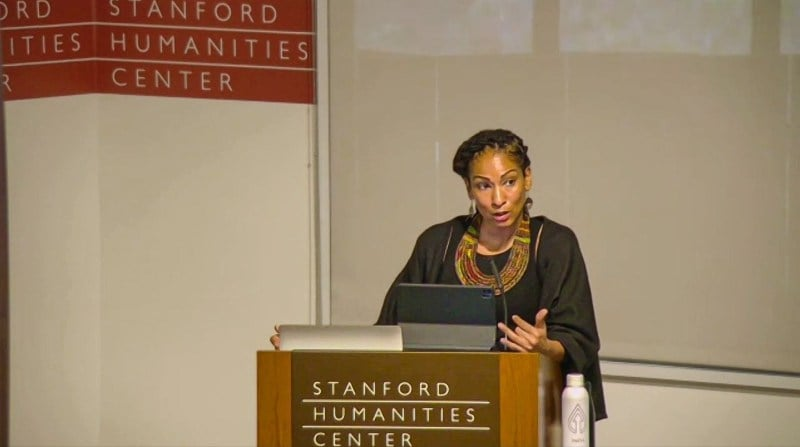The Medieval Studies Conference serves as a pivotal gathering for scholars immersed in the fascinating world of medieval studies, fostering collaboration and knowledge exchange among experts across disciplines. Held annually at renowned institutions, this prestigious event attracts medievalists from around the globe, including Harvard medievalists, who contribute to illuminating the profound influence of historical figures like Chaucer on contemporary thought. As academics delve into topics ranging from literature to history, discussions emphasize the need for interdisciplinary research that reflects the complexities of the medieval era. With a robust schedule packed with workshops, presentations, and engaging dialogues, attendees explore the nuances of their field, enhancing their understanding of medieval culture and its ongoing relevance. The conference thus not only preserves the legacy of past scholarship but also propels the future of academic gatherings dedicated to the medieval period.
The Medieval Studies Conference, often characterized as a crucial forum for discussing historical academic pursuits, showcases the broad spectrum of inquiry within the medieval domain. This annual assembly, widely attended by community members including Harvard scholars, acts as a catalyst for exploring the deep-rooted impacts of medieval literature and cultural phenomena. Furthermore, the event underscores how the collaborative efforts of researchers across various fields contribute to rich, interdisciplinary research that redefines our understanding of this pivotal era. By delving into the complexities of historical narratives and their modern interpretations, participants engage in meaningful exchanges that illuminate connections between past influences and present-day perspectives. This gathering not only highlights traditional scholarship but also encourages innovative ideas that will shape the future landscape of studies related to the medieval world.
Exploring Medieval Studies: A Royal Gathering of Scholars
The Medieval Studies Conference held at Harvard University serves as a beacon for medievalists, attracting academics from various disciplines to delve into the rich tapestry of medieval history, literature, and culture. This year marked a significant milestone as it celebrated a century of scholarly gathering, transforming Harvard Yard into a vibrant setting filled with discussions, presentations, and collaborative workshops. Over 800 scholars from around the globe united in this quest for knowledge, engaging with topics ranging from the nuanced influences of Geoffrey Chaucer on contemporary literature to the complexities of medieval trade agreements.
Such high-profile academic gatherings foster interdisciplinary research, vital for developing new perspectives in medieval studies. Participants, including both seasoned scholars and emerging voices, explored vital questions concerning historical narratives and their implications in today’s society. The presence of Harvard medievalists added depth to the dialogue, blending traditional themes with modern interpretations that challenge and expand upon classical knowledge.
Chaucer’s Enduring Influence in Contemporary Discourse
At the conference, discussions surrounding Chaucer’s influence surfaced prominently, particularly concerning the portrayal of rumor and its effects on truth. Fernanda García-Oteyza passionately linked the themes in Chaucer’s “The House of Fame” with those found in Patricia Lockwood’s recent literary work, illustrating the continuity of literary exploration regarding authority and inspiration through the ages. Chaucer’s examination of the narrative power of rumors resonates powerfully in today’s digital landscape, where misinformation abounds, showcasing the timeless nature of these literary concerns.
By bridging historical texts with modern interpretations, medieval studies not only enrich our understanding of the past but also provide valuable insights into present-day societal challenges. The discussions spurred by Chaucer’s work at the Medieval Studies Conference exemplified the interdisciplinary approach that underpins the field, encouraging scholars to delve deeper into the relationships between literature, truth, and cultural discourse.
The Interdisciplinary Nature of Medieval Academia
One of the most enlightening aspects of the Medieval Studies Conference was the interdisciplinary nature of the presentations and workshops. Scholars from varied specialties, such as history, literature, and even economics, came together to share their research and insights, fostering a collaborative environment charged with intellectual vitality. For example, presentations on medieval trade agreements not only highlighted historical phenomena but also examined the implications of these agreements in understanding contemporary economic frameworks.
These interdisciplinary discussions reflect the global perspective that medieval studies encompasses today. As students and faculty engaged with diverse topics ranging from Venetian commercial practices to the revival of ancient festivals in Ireland, new connections were drawn, demonstrating how medieval frameworks inform modern academic inquiries and societal understandings. Such collaboration is essential in evolving the discourse within medieval studies and ensuring that it remains a dynamic field.
A Century of Evolving Perspectives in Medieval Studies
The Centennial celebration at the Medieval Academy of America’s conference was not merely a reflection on the past but an exploration of the future of medieval studies. With roots planted firmly in Cambridge and Boston, the program showcased how the discipline has transformed over a hundred years. Sean Gilsdorf reflected on this evolution, addressing the shifts in focus, methodology, and the increasing importance of global perspectives in scholarly work. As attendees discussed the expanding themes within medieval studies, it became clear that the field is on the verge of exciting new directions.
This year’s workshops encouraged participants to think broadly about pedagogy and the teaching of the Global Middle Ages, emphasizing the interconnectedness of cultures and histories. Such pedagogical advancements, spearheaded by learned individuals like Assistant Professor Anna Wilson, signify a growing recognition of the diverse narratives and voices that shape our understanding of the medieval era. This focus on inclusivity and broadening the academic scope underscores the ongoing journey of medieval studies as it adapts and thrives in the landscape of contemporary scholarship.
The Role of Academic Gatherings in Shaping Medieval Scholarship
Academic gatherings, such as the Medieval Studies Conference, play a pivotal role in shaping the trajectory of scholarly research within the field of medieval studies. These gatherings not only serve as platforms for presenting new research but also act as spaces for networking and collaboration among scholars from various backgrounds. The chance to interact face-to-face, exchange ideas, and collaborate on projects is invaluable for both emerging scholars and established academics.
Moreover, these conferences foster a sense of community among medievalists, bridging geographical and intellectual divides. As scholars like Emily Sun noted, the value of such interactions extends beyond mere presentations; they encapsulate the essence of academic life — shared experiences, discussions that push the boundaries of thought, and the inspiration drawn from observing peers at work. These moments are critical in fostering a lasting impact on the field, encouraging innovative research and dialogue that will fuel the discipline for years to come.
Global Perspectives in the Study of the Middle Ages
This year’s conference highlighted the widening global perspectives within medieval studies, moving beyond the traditional Eurocentric narratives to encompass a more diverse array of medieval experiences. Presentations on the historical contexts of the Mediterranean, Africa, and East Asia showcased the interconnectedness of medieval societies, emphasizing trade, cultural exchange, and migration patterns that shaped these regions. This broader lens encourages scholars to rethink established narratives and recognize the richness of global medieval histories.
The inclusion of global perspectives not only enriches scholarly discourse but also enhances the relevance of medieval studies in today’s multicultural world. Such an approach allows researchers to draw parallels between medieval issues and contemporary global issues, fostering a nuanced understanding of history that resonates with diverse audiences. This shift towards inclusivity and awareness of global dynamics reflects the progressive evolution of the field and its commitment to an enriched academic tapestry.
Reflections on the Future of Medieval Studies
As participants at the Medieval Studies Conference reflected on the past century, they looked forward to the future of the discipline with excitement and curiosity. The evolution of medieval studies encompasses not just new methodologies and theories but also a commitment to exploring topics that resonate with current societal challenges. As scholars discuss where the field is headed, there is a renewed enthusiasm to uncover how the insights gained from medieval research can inform modern understandings of cultural and social dynamics.
This forward momentum is crucial, especially as scholars continue to grapple with the complexities of history in a rapidly changing world. The collaborative spirit fostered at events like the Medieval Studies Conference serves as a catalyst for future innovations and breakthroughs, pushing the boundaries of what we understand about the medieval past and its relevance to our present and future. The path ahead promises an exciting realm of inquiry that holds potential for scholars and students alike.
Engaging Future Generations in Medieval Scholarship
The Medieval Studies Conference also emphasizes the importance of engaging the next generation of scholars in the field. With significant representation from graduate students and early-career academics, the event provides an encouraging platform for emerging voices to share their insights and research. This intermingling of seasoned scholars and newcomers enriches the discussions, fostering mentorship and collaboration essential for the growth of medieval studies.
Workshops aimed at teaching and pedagogy enhance this engagement by equipping young scholars with the tools they need to effectively communicate their findings and perspectives. The dynamic exchange of ideas not only boosts confidence among newer scholars but also encourages them to become advocates for the ongoing relevance of medieval studies in contemporary academia and beyond. By fostering these connections and supporting the next wave of researchers, the conference plays a vital role in ensuring the longevity and vitality of the field.
The Significance of Presentations and Workshops in Historical Discourse
The diversity of presentations and workshops at the Medieval Studies Conference underscores the importance of creating an inclusive space for exploring historical discourse. With over 500 speakers contributing to the event, topics ranged from nuanced examinations of medieval texts to practical discussions about the pedagogy of teaching medieval studies. This wide-ranging approach not only demonstrates the complexity of the field but also invites participants to engage with varying interpretations and methodologies.
By providing diverse programming, the conference highlights the integral role of workshops in the scholarly community. They serve as important venues for collaboration and skill development, allowing scholars to refine their research and pedagogy. Engaging with cutting-edge topics and historic materials inspires fresh perspectives among participants, encouraging a richer understanding of the medieval era and its significance in contemporary contexts.
Frequently Asked Questions
What can attendees expect from the Medieval Studies Conference at Harvard?
The Medieval Studies Conference at Harvard offers a rich program featuring over 800 academics from around the world. Attendees can expect workshops, presentations, plenary addresses, and networking opportunities, showcasing the interdisciplinary nature of medieval studies. This event serves as an important academic gathering where scholars discuss diverse topics related to medieval history, literature, and culture.
How does the Medieval Studies Conference highlight Geoffrey Chaucer’s influence?
The Medieval Studies Conference often explores Geoffrey Chaucer’s lasting influence on literature and culture. Scholars discuss themes from Chaucer’s works, such as those in ‘The Canterbury Tales’ and ‘The House of Fame’, revealing insights into contemporary issues like misinformation and poetic authority, thus connecting Chaucer’s historical context to modern literary discourse.
Why is the Medieval Academy of America’s conference significant for medievalists?
The Medieval Academy of America’s conference is significant as it represents a major hub for medievalists worldwide, fostering interdisciplinary research and collaboration. It provides a unique platform for sharing cutting-edge scholarship in medieval studies, as well as facilitating connections between experienced researchers and emerging scholars.
How has medieval studies evolved over the past century?
Medieval studies has evolved significantly over the past century, as showcased at the Medieval Studies Conference. The field has broadened its global perspective, encompassing various cultures and regions, such as the Mediterranean, Africa, and Islamic territories. This evolution reflects a shift towards inclusivity and interdisciplinary research within the academic community.
What role does Chaucer play in discussions at the Medieval Studies Conference?
Chaucer plays a pivotal role in discussions at the Medieval Studies Conference, often serving as a reference point for examining the interplay between historical and contemporary themes in literature. Scholars delve into how Chaucer’s narratives resonate with modern literary challenges, enriching the discourse on medieval studies and its relevance today.
Are there specific themes addressed in the Medieval Studies Conference?
Yes, the Medieval Studies Conference addresses a wide range of themes, including trade agreements in medieval times, literary translations, and the cultural interactions of the Middle Ages. Presentations, like those on medieval Venetian trade or the revival of ancient festivals, illustrate the diversity and richness of topics explored within medieval studies.
How can graduate students benefit from the Medieval Studies Conference?
Graduate students can greatly benefit from the Medieval Studies Conference through networking opportunities, professional development workshops, and exposure to innovative research. They can engage with leading scholars, present their findings, and gain insights into the future directions of the field, enhancing their academic careers in medieval studies.
What is the significance of interdisciplinary research at the Medieval Studies Conference?
Interdisciplinary research is a cornerstone of the Medieval Studies Conference, as it fosters collaboration between various academic fields. This approach enhances the understanding of medieval history and culture by incorporating perspectives from literature, history, religion, and art, allowing scholars to explore complex themes in a holistic manner.
What types of presentations can participants expect at the Medieval Academy’s conference?
Participants at the Medieval Academy’s conference can expect a diverse array of presentations, including scholarly papers, panel discussions, workshops, and plenary talks. The topics often range from medieval literature and historical studies to contemporary interpretations and pedagogical strategies, reflecting the dynamic nature of medieval studies.
How does the Medieval Studies Conference encourage global perspectives in its programming?
The Medieval Studies Conference encourages global perspectives by featuring research that encompasses a wide geographical scope including regions like Africa, East Asia, and the Islamic world. This diverse programming promotes a more comprehensive understanding of the medieval period and highlights the interconnectedness of various cultures.
| Key Points | ||
|---|---|---|
| Date and Location | Number of Attendees | Major Themes |
| April 2, 2025, Harvard Yard | 800 academics from 23 countries | Interdisciplinary studies, medieval literature influence, global perspectives |
| Keynote Speakers/Instructors | Notable Presentations | Historical Significance |
| Sean Gilsdorf, Fernanda García-Oteyza | Research on medieval trade agreements by Elena Shadrina | 100th annual meeting, reflecting on the evolution of medieval studies |
Summary
The Medieval Studies Conference held at Harvard is a historic event celebrating a century of scholarship in medieval studies. This conference not only showcased the rich contributions of 800 scholars from various parts of the world but also facilitated engaging discussions around the evolving nature of medieval literature, culture, and interdisciplinary research. With presentations spanning from Geoffrey Chaucer’s influence on contemporary literature to the examination of global medieval perspectives, attendees are inspired to reflect on both the historical significance of their field and its future directions.



